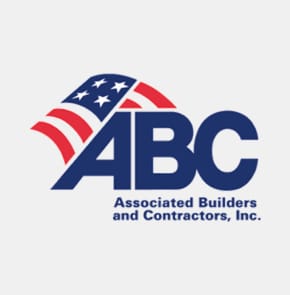University HQ is an industry-leading, independent educational organization that provides independent college rankings using a proprietary formula to create first class unbiased rankings. The team at University Headquarters strives to provide accurate and trustworthy rankings that highlights the best construction management programs.
What Does a Career in Construction Management Entail?
Construction management provides oversight on buildings and construction project management. The work is administrative but also requires detailed knowledge about the standards, design, and construction materials and methods involved. Construction managers must control a complex flow of materials, scheduling plans, equipment, and personnel, as well as advising those who commission the project. They must keep to a set of guidelines that include time, budget, and compliance with legal requirements.
Working conditions can vary with assignments for construction managers. Projects may involve difficult locations, harsh weather conditions, or remote locations. Some construction manager career opportunities may mean working in an office setting, but many more involve setting up construction project offices on or near worksites, where construction managers control the entire project. Construction managers must manage a wide variety of situations and factors such as labor negotiations, contract disputes, construction safety, and changes in the plan of work. Multitasking under sometimes stressful conditions, the project manager has primary responsibility for performance, quality, and compliance on the job site and its related functions. This is why these positions may require a construction management degree from a college of engineering program or, if you skip the academics, years of experience, specifically full-time, practical experience earned on worksites within the United States from high school onward.
A construction manager may choose to work in a variety of project types and choose their own career opportunities and career paths, whether they attend a university for their construction management degree or not, though certain construction management courses can prepare you for some of these specifically. Just some of their career options include:
- Residential
- Industrial
- Commercial
- Environmental
- Civil Engineering
- Surveying and Mapping
- And More
Featured Online Construction Management Programs
How to Earn a Construction Management Degree Online
Students can complete a two-year associate construction management degree, a four-year BA or BS in Construction Management, and they can continue on to attain a master’s in construction management. Internships and real-world work experience are vital concerns. Work experience is a necessary ingredient to a well-rounded construction education profile.
Find Your Online Construction Management Program
What can you do with a Construction Management Degree?
 Construction management is a highly technical occupation that requires frequent updating and continuing education. Many construction managers also serve as teachers and mentors as employers and contractors seek to expand the ranks of highly qualified managers in construction. It can also provide a background for entrepreneurship in the industry along with the allied fields of building, contracting, supply, and equipment finance businesses.
Construction management is a highly technical occupation that requires frequent updating and continuing education. Many construction managers also serve as teachers and mentors as employers and contractors seek to expand the ranks of highly qualified managers in construction. It can also provide a background for entrepreneurship in the industry along with the allied fields of building, contracting, supply, and equipment finance businesses.
Typical Construction Management Degree Requirements
There is no single set of requirements for construction management; technology and innovation have added many layers of complexity to construction projects. Employers nearly always seek candidates with formal specialized education. Most construction employers require a BS degree in construction management, science, engineering, architecture, or a closely related field.
An associate in construction management is a two-year degree that provides an entry-level qualification when combined with construction experience.
A Bachelor’s Degree in Construction Management is an excellent qualification for those who want to graduate prepared to perform in the construction project office and on-site locations.
A Master’s Degree in Construction Management supports mid-senior level positions such as complex construction projects or as an administrator of all construction for a large corporation or conglomerate.
Typical Construction Management Certifications Needed
 States and local governments control licensing requirements for builders and contractors. Some states require a license or certification for construction managers. Many construction managers seek voluntary certifications from industry-based groups to demonstrate their capabilities and knowledge. These certification groups also provide continuing education, information, and an ongoing connection to trends, policies, and regulations that affect the industry.
States and local governments control licensing requirements for builders and contractors. Some states require a license or certification for construction managers. Many construction managers seek voluntary certifications from industry-based groups to demonstrate their capabilities and knowledge. These certification groups also provide continuing education, information, and an ongoing connection to trends, policies, and regulations that affect the industry.
The Construction Management Association of America offers a Certified Construction Manager certificate, and the American Institute of Constructors has an Associate Constructor and a Certified Professional Constructor designation. These certifications carry weight in the industry and demonstrate expertise and knowledge based on study, examination, and experience.
Academic Standards
According to the Bureau of Labor Statistics (BLS), more than 100 colleges and universities provide accredited construction management education and degrees in construction science, construction management, building science and construction engineering. Further, an additional fifty two-year colleges offer construction management and construction technology concentrations.
Exam or Experience Needed
There are no national standard requirements for construction managers; traditionally they have come through on the job training and apprentice-type learning environments. Many construction managers began as workers who became crew leaders. Some crew leaders got training and experience that led to site superintendent positions. They may have elevated to construction management assistant status and learned on the job from an experienced construction manager. In recent decades, employers have recognized the need to require science-based education, as construction professionals adopt new technology and innovations. Therefore, the CM role has become more professional and formally trained.
Costs of Online Construction Management Degrees
The below-listed figures describe average costs for Associates, Bachelor’s, Master’s degrees
Costs of Construction Management Degrees:
- Associate (public): $3,570 per year or about $ 7,200 for two years
- Associate (private): $14,587 per year and about $29,200 for two years
- Bachelor’s (in-state - public): $9,970 per year or $39,500 for four years
- Bachelor’s (out-of-state - public): $25,620 per year or $102,000 for four years rate
- Bachelor’s (in-state – private): $34,740 per year or $140,000 for four years.
- Master’s (public): $8,670 per year or about $18,000 for two years.
- Master’s (private): $29,960 per year or about $60,000 for two years.
Online Associate Degree in Construction Management
The associate degree in construction management is an entry-level qualification. The degree adds construction core to general knowledge in math, science, and writing. The AA in Construction Management works with construction experience to prepare a student for leadership. The Associate Degree works well with apprenticeship type opportunities to learn on site from an experienced construction manager.
Find Online Construction Management Schools
Coursework for Associate Degree in Construction Management:
- Introduction to Surveying and Mapping
- Construction Safety
- Construction Supervision
- Principles of Management
- Leadership
- Fundamentals of Design
Online Bachelor’s Degree in Construction Management
Coursework for bachelor’s in construction management:
- Mathematics and Statistics
- Building Science
- Physics
- Project Control and Management
- Building Codes and Construction Standards
- Workplace Safety
- Costs Estimation
Concentrations for bachelor’s in construction management include: Design, Construction Finance, Construction Law, and Contracts
Online Master’s Degree in Construction Management
This degree prepares students with knowledge in Procurement, Construction Science, Project Management, and Operational Leadership in the construction industry
Courses for Online Master’s Degree in Construction Management:
- Construction Technology
- Design and Modeling
- Information Technology in Construction
- Hazard Resistant Construction
- Construction Productivity
- Project Management
- Project Controls
Concentrations for master’s degree in Construction Management: MBA in Construction Management, Finance, Real Estate Management Development, and Architecture, Engineering and Construction(AEC)
What Can I Do with a Construction Management Degree?
A construction management degree is the perfect next step for anyone who loves the building trades. Carpenters, electricians, plumbers, and even house painters can use this degree to enhance their work on the job site. It will be easy to move into a foreman position and many will become site supervisors. On the other hand, the business skills and focus on construction can help experienced tradespeople start their own small companies that subcontract on larger jobs such as subdivisions, skyscrapers, and more.
Search Programs Offering Construction Management Majors
When you graduate with a degree in construction management, you won't have to know how to draw plans, crunch the budgetary numbers, or perform feats of engineering magic. Rather, you'll know what to expect from the professionals who generate those pieces of the construction puzzle. Like a film director, you will guide a team of highly skilled artisans towards the completion of an amazing project.
Construction Management Fields of Study
- Green Construction: While it seems pretty cut and dry what you’ll be doing if you get into construction management, the truth is that you are likely to get into specific types of projects, either because you are specifically interested in them or because you have specialized knowledge that will help you. In green construction, you will focus on sustainability and may incorporate techniques that are unusual, such as geothermal cooling and heating or the incorporation of solar power into the infrastructure of a building.
- Real Estate: You may specialize in working for a company that builds homes for clients from the ground up. These homes often allow the customer to customize and will need careful planning to make necessary changes. Or, you might work for a developer, filling an entire lot with homes in order to create a new neighborhood in a growing town.
- City Construction: While building homes is one thing, building in a city is a completely different experience. There are regulations you have to be aware of and a crisscrossing network of wires and piping that you must work around in many cases. Building a skyscraper or even an office complex in the middle of a city is quite the project.
Construction Management Careers and Salary
Construction management is a career that involves the ability to assemble a team, manage their work, and ensure the timely construction of a building, house, or large-scale development. Not only does it demand that professionals coordinate the personalities involved, but they must also be able to bring in all aspects of the project under a budgetary ceiling.
For all of this work, construction management professionals are well paid. The Bureau of Labor Statistics reports that managers in this sector earn a median salary of $95,000. The BLS also shows that the typical construction manager has a bachelor's degree and that the field is growing at a rate of 10%.
This degree is perfect for students with a background in construction or who thrive on spending their workdays on a construction site under the sun. However, it will be beneficial to spend significant time building practical experience learning a trade.
Construction Management Career Options
- Facilities Manager: A facilities manager may not be a full construction manager position, but it is a good jumping-off point to reach that goal. Not to mention, if you are in charge when a remodel occurs or if you create a repair schedule that lives on past your tenure, you will be in a good position to show you have construction management experience.
- Sustainability Consultant: In this position, you will work with a variety of construction managers who don’t have the expertise to perfectly meld environmental sustainability with their projects. You will bring that expertise to the table and help them keep under budget as they implement your suggestions.
- Construction Estimator: The estimator is important for determining exactly what the company can expect to pay for any new project and where the budget might be shaved down without lowering safety standards or reducing overall quality. The project manager will rely on the estimator's work extensively throughout the project.
- Planner/Scheduler: This is a management position where you are responsible for making sure you have people to work the site. This may mean bringing in contractors, dealing with delays if, say, the electrical contractor is delayed in finishing. You can’t let the drywallers come in and close up the walls if the electrical isn’t complete. You’ll watch the whole project closely and track the completion of steps within each project before moving on to the next.
- Construction Project Manager: Whichever type of construction you favor, this is the head honcho position. You will be in charge of getting the budget, getting the surveys, making sure the blueprints work within said budget and surveys, and making sure the work happens quickly and safely while you bring the finished project to fruition.
Construction Management Salaries by Career
| Entry-Level Median Annual Salary | Mid-Career Median Annual Salary | Late-Career Median Annual Salary | |
|---|---|---|---|
| Construction Manager | $57,100 | $76,500 | $91,700 |
| Project Manager | $55,900 | $77,800 | $90,800 |
| Construction Project Manager | $52,400 | $75,000 | $87,200 |
| Senior Project Manager | $88,300 | $102,100 | $117,400 |
| Project Engineer Construction | $58,800 | $73,300 | $95,000 |
Important Questions to Ask (FAQ)
How long does it take to earn a Construction Management B.A. degree online?
Students can complete an online BS in construction management in as little as four years of full-time attendance. Since online education works well with employed persons, business owners, and people with other obligations, part-time attendance allows students to proceed at their preferred pace. Most schools set an overall time limit to complete a degree but it may be as long as six to eight years.
Find Your Online Construction Management Program
How much does a Construction Management bachelor’s degree cost?
The costs of a construction management degree consist of two major sections; there is a cost for tuition-related expenses and a cost for living expenses. For many students, the costs of room and board can be almost as great as that of the investment needed for school tuition. Online education can be more effective for many students for the reason that online education requires the student to take on fewer living expenses, especially if they are living at home while completing their degree. It can also allow the student to maintain a work schedule so that they can continue to earn a living.
A. College Tuition
For the 2017-2018 school year, the Department of Education reports that the tuition costs at a four-year private school averaged $34,740 per year. Tuition at public schools for in-state students averaged $9,970 per year, and tuition at public schools for out-of-state students averaged $25,620.
B. Total Costs
The average costs of living for public university students is about $10,800 per year, and the estimate for private school students is about $12,500 per year. The total costs for private students are around $48,000 per year. The public in-state total is $21,000 per year, and the public out-of-state total is $37,000 per year.
Construction Management Bachelor's Degree Coursework
The required subjects in a bachelor’s in construction management must cover the technical and business side of overseeing a project from the ground up. Technical and science coursework includes CAD design, math and physics, construction methods, and construction materials. Construction managers must know how to read blueprints and design specifications. They must know about building codes and safety regulations. The business side includes finance, law, ethics, management, and planning.
When selecting a minor course of study, many construction management students choose complementary fields like business administration, entrepreneurship, and finance. They may also benefit from concentrations in computer science or communications.
Does the school have the major(s) you’re considering?
When selecting a school, students must be sure that the curriculum offers the coursework needed to accomplish their goals. One of the student’s basic questions should be whether the school offers the fields of study that are of highest interest to them. The major field of study is a vital part of a college education; for most students, their choice of major reflects their educational and career goals. Often students do not have an exact idea of their career fields when selecting a college or school. To the extent that they have goals, students should align their choice of school with those that are both immediate and long-term.
The school should have the field of interest as a major and also some minor fields and concentrations that will fill the student’s needs. In the field of construction management, a student may wish to complement that major with a strong minor in business administration. They can select a school with the best combination of strengths, faculty, and resources to accomplish that.
How many students graduate “on time,” in four years?
The average on-time graduation rate in the US among private colleges and universities is 53%. The six-year rate is 65%. The trend is similar in public four-year schools. The public school on-time graduation rate is 35%, and the six-year rate is 58.6%. Much of the information on student experiences is not a prediction but rather ideas that should help focus attention on things that concern students. However, the graduation rate is often predictive; if most students typically do not graduate in four years, then that pattern will likely affect every student. You must have an effective plan to achieve on-time graduation.
The Department of Education offers the College Scorecard tool that provides detailed information about costs, living expenses, and student debt. The scoreboard also covers the graduation rates for each school. Further, most schools publish the same information and include results from student satisfaction surveys. The question of on-time graduation is more than a factor of convenience. With the rising costs of education, students must consider the number of years when determining the costs of education. When completing a four-year degree takes five or six years, then the costs of that degree increase by 25-50%.
What kind of accreditation does the online program hold? How is it regarded in the field?
Accreditation is an essential part of making the right selection of a construction management program. It is important that students understand accreditation and the role it plays in the education system. In essence, accreditation is a review of a college or university to make sure that it meets quality standards for good education. The review includes the faculty, facilities, and student resources like libraries and research programs.
For schools that pass the review, accreditation is a guarantee of high-quality education. The United States Department of Education requires accreditation for schools and colleges that participate in federal student loan programs and provide federal financial aid. Many scholarships in the public and private sectors require attendance at accredited institutions.
Institutional and program accreditation affects the value of a degree because employers, educators, and other reviewers rely upon it. You should be keeping your eyes open for accreditation from the American Council for Construction Education (ACCE).
Software, Technology, Skills Needed
Construction management is a broad field that includes elements of related fields like business, accounting, finance, budgeting, and estimating.
Many of the regular functions that construction managers perform involve software and automated processes such as:
- Project Management Software
- Schedule Management Software
- Cost Estimating Software
- Computer Assisted Design Software
- Word Processing
- Presentation Software
Construction Management Scholarships
-
CMAA Mid-Atlantic Chapter Scholarship- awards up to
Amount: $3,000The Mid-Atlantic Chapter of the Construction Management Association of America offers scholarships for students pursuing degrees in construction management or a closely related field. Qualified applicants will be enrolled in a construction management program, show interest in a career management career, have one year completed, and at least one year remaining of college study. Students must reside and or attend school in the states of New Jersey, Pennsylvania or Delaware.
-
IFMA Foundation Scholarship Program
Amount: $10,000The awards range in size from $1,500-$10,000 for undergraduate and graduate students enrolled in facility management or facility management-related programs (the definition of facility management-related programs includes construction management, architecture, interior design, and some engineering disciplines). Eligible students must have a minimum 3.2 GPA.
-
Tidewater AGC Educational Scholarships
Amount: $5,000Tidewater AGC of Virginia offers academic scholarships to assist students in pursuing careers in engineering, design, construction, and related professions. Eligible applicants must be employed by a Tidewater district AGC member firm, an immediate family member of an employee of a Tidewater district AGC member firm, or a member of an AGC Student Chapter. Applicants must pursue a construction-related degree in a two-year or four-year college or university, vocational or technical school, community college, or continuing education program.
-
CFMA Portland Chapter Scholarship
Amount: $3,000The Construction Financial Management Association offers a scholarship for construction management study. The program goal is to increase student awareness of the CFMA and careers in construction. The program awards high-achieving students with majors in accounting, finance, or construction management.
-
MAC CMAA Graduate / Undergraduate for Construction Managers
Amount: $3,500The MAC chapter of the Construction Management Association of America offers a scholarship to students that reside or attend school in the states of New Jersey, Pennsylvania, or Delaware. Applicants must have completed one year and have one year remaining in an undergraduate or graduate degree program in Construction management or a related field. Applicants must apply with an essay to demonstrate their interest in a career in construction management.
Professional Organizations
- AGC
- APM
- CMAA
- AIC
- ABC

AGC
The Associated General Contractors
The AGC is the leading advocacy organization for the construction industry. It has committees and activities aimed at promoting construction management including training and education programs. The AGC is an excellent vehicle for networking among the leading construction firms in the United States. The national association works with fifty state-level organizations.

APM
Association for Project Managers
This association advocates for greater involvement for Construction managers. It promotes education and continuing CM education. Members can keep abreast of Industry news, trends, and developments.

CMAA
CMAA is the Construction Management Association of America.
This organization advocates for expanded use of professional construction managers. The association works within the Architects, Engineering, and Construction Industries. The CMAA is a lead agency for accreditation working with the Accreditation Board for Engineering and Technology. It supports more than 40 student chapters and its regional chapters offer construction management scholarships. The organization promotes internship opportunities for CM majors.

AIC
American Institute of Constructors
The AIC is a professional organization that provides training for all the construction industry subfields. The institute promotes professionalism and quality standards for individual practitioners and construction firms. The Institute provides certifications, and it promotes networking, education, and advocacy for quality standards.

ABC
The Associated Builders and Contractors
The ABC is a large national and international organization. Its membership includes leading builders and contractors. The ABC has student chapters that offer opportunities for networking, internships, and scholarships.
Choosing an Accredited College
There are two types of online accreditation, and the difference is essential for students. The main types of accreditation are national accreditation and regional accreditation. Regional accreditation is the more demanding of the two, and it carries greater influence and acceptance than national accreditation. Program accreditation also is influential, and accredited construction management programs from regionally accredited schools would have the best level of acceptance.
National Accreditation
- Faith-based accreditation is the standard for religious institutions, and the procedure compares them with similar schools across the US.
- Career-related Accreditation includes online colleges, for-profit and non-degree schools.
Regional Accreditation
- Institutional accreditation reviews the entire college or university and certifies all the parts. The standard for institutional accreditation is the level of educational excellence in the defined geographic region.
- Program accreditation is similar to institutional accreditation in that it uses a standard based on other school programs in the same region. Program accreditation focuses on a particular program such as an MBA program or a master’s degree in Construction Management.
National accreditation works well for most purposes. This type of accreditation has a wide acceptance, particularly when applied to faith-based schools and technical or career schools. Students that plan to get further education such as graduate degrees should look for schools with regional and program accreditation. Some regionally accredited schools do not accept credits from nationally accredited schools.
Online vs. On-Campus vs. Hybrid
Students can choose whether to attend an on-campus program with traditional classroom instruction, study online, or combine on-campus and online into a custom or hybrid type program. The online option appeals to people that are employed, run businesses, and have needs or preferences that conflict with on-campus attendance. Online options permit self-paced learning and reduce some costs. Many students pay as much to live on or near campus than the price of tuition.
Find Online Construction Management Schools
Online learning is usually asynchronous, which simply means that students do not gather at the same place or the same time to participate in the class work. The online programs offer access when the student wishes to use it, and the flexibility may be particularly important to residents in remote or rural areas.
A hybrid program would allow access to online class experiences but may require either short residence programs on-campus or other classroom activities. Make sure to thoroughly check the requirements for these programs before signing up for one.
Frequently Asked Questions
What’s important to know about construction management before you get started?
One thing that some construction managers wish they knew before they got started in the field is the fact that it is a relatively stressful job. Especially at higher levels, a construction manager can be responsible for dealing with all the bureaucracy that surrounds large business construction projects. That may mean filing paperwork with a city and state, or it may mean dealing with the concerns of shareholders; most likely it will mean doing both of these things. And, while you may not constantly be in the most stressful part of a job, these things may seem to all hit you at the same time. If you think construction management will be calmly looking at blueprints and setting up schedules, then you should also consider all the stress that is likely to hit at one point or another. These are likely to hit when a project is in danger of falling behind, when you will need to work longer hours to ensure that you get it back on track. And a lot can go wrong in this field. Construction sites can be dangerous, scheduling conflicts can arise seemingly out of nowhere, and workers are not always 100% reliable. Be prepared to deal with frustration, no matter where you end up working.
Are construction managers in demand?
There are currently nearly 290,000 construction managers working in the US. While this may not seem like much, considering the size of the country, you should also consider that the demand for project managers of this kind is expected to grow by 11% between 2020 and 2030. This is according to the Bureau of Labor Statistics (BLS). And, on top of that, their mean annual wage is over $100,000/year. So, it might be worth it to work your way up in the field, even if it’s difficult to get a foot in the door when you start. There are always certifications and other ways to improve your resume and improve your chances of gaining access to more careers in the field.
Does the College Have Post Graduate Job Placement Help & Assistance?
Job assistance is an advantage that some schools offer to their students and alumni. It can be simple arrangements like job boards or elaborate recruitment systems that connect students with good paying job opportunities. A school is more than buildings, faculty, and students. A school consists of a network of alumni, business sponsors, and affiliated national, regional, or community organizations. Students fare far better in job searches when schools focus their resources on developing job opportunities. Both students and employers can benefit. Schools that provide placement assistance, career counseling, and referrals put students in excellent positions to succeed after graduation.
Why You Need to Consider that Rating/accreditation Can Affect Your Salary?
The accreditation and school rating affect the usefulness of your degree. Employers and other educational institutions use accreditation to support a student’s resume. Accreditation is a guarantee that the student received a high-quality education and that they are well prepared to meet the expectations for a bachelor’s or master’s degree holder. Because employers rely on accreditation, graduates of regionally accredited institutions and online programs can enjoy a wide range of employment opportunities. The same advantage applies to persons that seek to use their education for career advancement.
Accreditation can also affect a student’s ability to finance his or her education. Federal student loans, state government programs, and many private scholarships and grants require attendance at accredited schools.
Search All Programs
